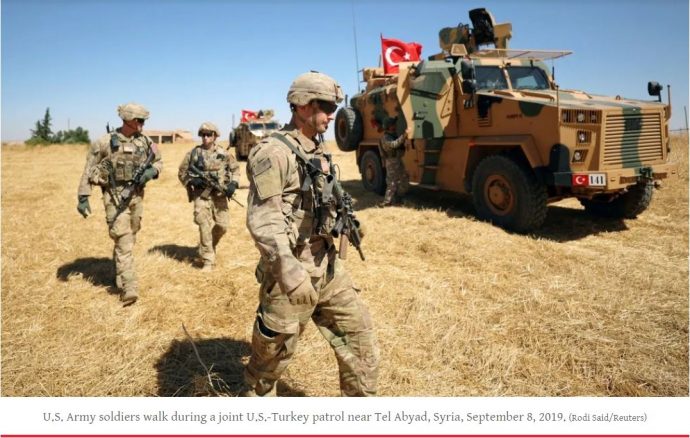Andrew C. McCarthy gets into some of the details regarding Turkey and the Kurds:
[President Donald Trump] has a cogent position that is consistent with the Constitution and public opinion. He wants U.S. forces out of a conflict in which America’s interests have never been clear, and for which Congress has never approved military intervention. I find that sensible — no surprise, given that I have opposed intervention in Syria from the start (see, e.g., here, here, here, here, here, here, and here). The stridency of the counterarguments is matched only by their selectiveness in reciting relevant facts.
I thus respectfully dissent from our National Review editorial.
President Trump, it says, is “making a serious mistake” by moving our forces away from what is described as “Kurdish territory”; the resulting invasion by superior Turkish forces will “kill American allies” while “carving out a zone of dominance” that will serve further to “inflame and complicate” the region.
Where to begin? Perhaps with the basic fact that there is no Kurdish territory. There is Syrian territory on Turkey’s border that the Kurds are occupying — a situation that itself serves to “inflame and complicate” the region for reasons I shall come to. Ethnic Kurds do not have a state. They live in contiguous parts of Syria, Turkey, Iraq, and Iran. Most are integrated into these countries, but many are separatists.
The Kurds have been our allies against ISIS, but it is not for us that they have fought. They fight ISIS for themselves, with our help. They are seeking an autonomous zone and, ultimately, statehood. The editorial fails to note that the Kurds we have backed, led by the YPG (People’s Protection Units), are the Syrian branch of the PKK (the Kurdistan Worker’s Party) in Turkey. The PKK is a militant separatist organization with Marxist-Leninist roots. Although such informed observers as Michael Rubin contend that the PKK has “evolved,” it remains a formally designated foreign terrorist organization under U.S. law. While our government materially supports the PKK’s confederates, ordinary Americans have been prosecuted for materially supporting the PKK.
Read more: National Review
Image credit: www.nationalreview.com.

